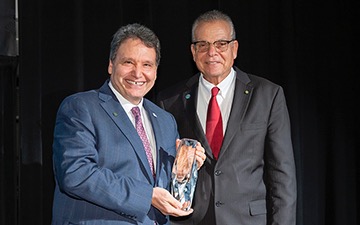A UNF biology team conducted a year-long research study of the population of Jacksonville’s urban alligators. The team wanted to observe how alligators behave in large cities, and found that there are few adult alligators in Jacksonville.
“I wanted to do the research because the urban areas of the South East of the U.S., and especially Florida, are growing. […] As cities get bigger, it means that the wild life that we share the landscape with could be impacted,” Assistant Professor of Biology Dr. Adam Rosenblatt explained.
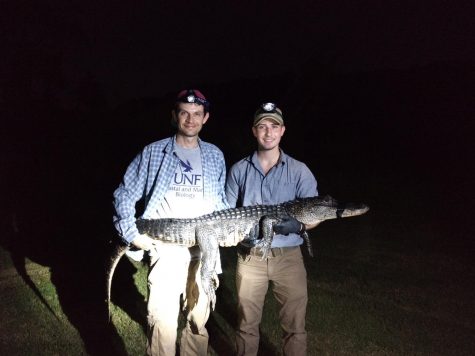
Dr. Rosenblatt led the research and was helped by graduate student Eli Beal, along with nearly a dozen other undergraduate students.
The team surveyed various bodies of water around Downtown Jacksonville, in nine different tributaries of the St. Johns River. The research was conducted through all of 2019 and would take place during the night due to it being easier to see the alligators.
“We drove a boat through all of these different rivers and creeks and just counted every single alligator we could see,” Dr. Rosenblatt said. “We also estimated the size of each alligator that we would come across.”
What they found is that there are very few adult alligators in Jacksonville. According to Dr. Rosenblatt, an adult alligator is defined as anything longer than six feet.
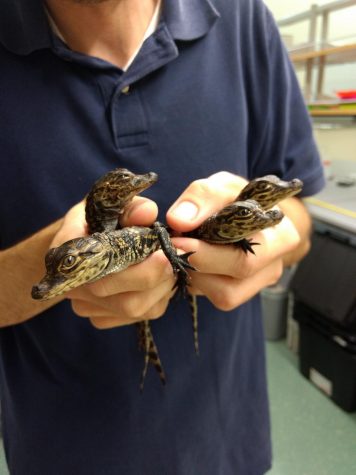
“We only found one adult in all of our surveys,” Dr. Rosenblatt said. “All of the other animals were smaller juveniles and babies.”
This indicates that over time, the larger animals have been removed by hunters or by nuisance alligator trappers, according to Dr. Rosenblatt. He says that the indication is supported by some data that the state keeps on the sizes of alligators that are hunted or caught by nuisance alligator trappers — in Jacksonville specifically.
Dr. Rosenblatt mentioned that the small alligators that are left avoid the ocean, because they don’t like water that’s too salty.
They also found that, within each of the creeks and rivers that were surveyed, alligators tend to avoid areas where humans have “built up the landscape,” put lots of docks on the water, or hardened the shoreline (walls and fences in backyards that operate against the water).
“Alligators don’t like to be in areas that have been sort of transformed by us,” Dr. Rosenblatt said.
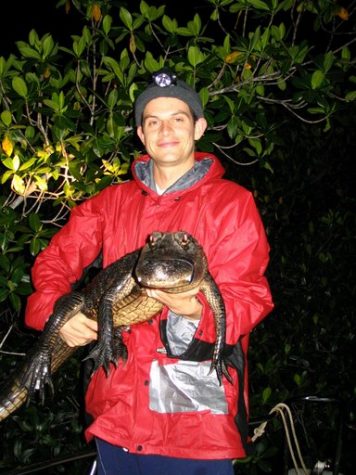
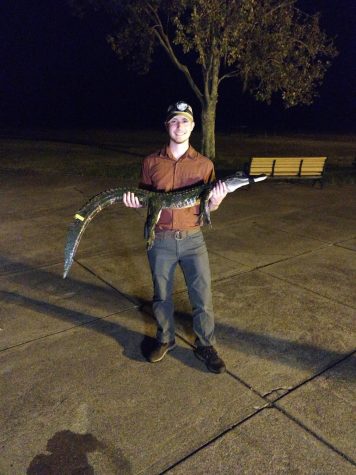
The research team’s results were published in the Scientific Reports Journal.
To sum up their findings, it seems that there are few adult alligators in the Jacksonville area, as they only found one adult alligator out of the 93 sightings. State data suggests that this is due to nuisance hunting and trapping. The remaining small alligators avoid salty water and human structures and prefer open water and vegetated shorelines. Smaller alligators continue to thrive in urban areas because they are not targeted and don’t have competition with adult alligators.
“Increasing urbanization and human activity may further degrade alligator habitats and limit the distribution of breeding adults, potentially leading to local population declines,” the report read.
__
For more information or news tips, or if you see an error in this story or have any compliments or concerns, contact editor@unfspinnaker.com.










